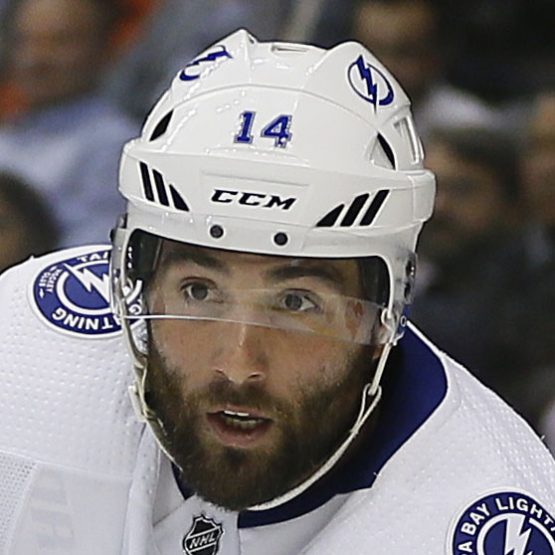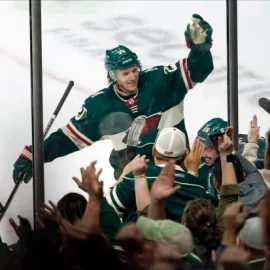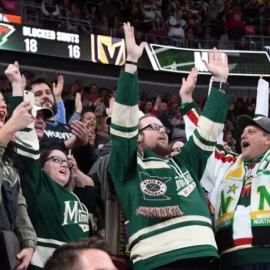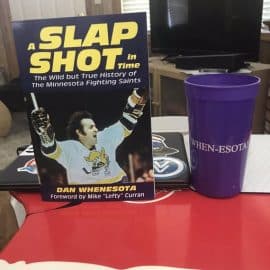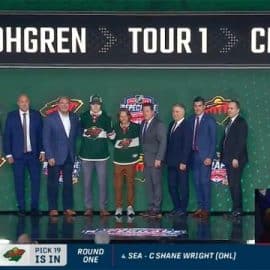If you’ve spent much time at the workplace, you have probably gone to a meeting or two over that span. In fact, you’ve probably spent more time at than you’ve wanted to. Some meetings can be a complete waste of time where you are stuck listening to a bunch of pointless rhetoric and others can be very intense and even a tad bit uncomfortable. It is in the latter, where you often think about what has been said and perhaps more importantly, what has been left unsaid. I have little doubt there was at least a little ‘tension’ in the latest meeting between the NHL and the NHL Player’s Association as the lockout continues to roll on. The NHLPA answered the NHL’s Tuesday offer with 3 counter proposals of their own which were quickly rebuffed by he NHL in a meeting that lasted a little less than an hour. The NHL stated that they felt the NHLPA really did not take their initial offer seriously. Those comments yielded a terse response by the NHLPA.
NHLPA Commissioner Donald Fehr stated at a post-meeting press conference, “We said, here are two avenues that you can look at which the players are prepared to get down to in a reasonable amount of time given what happened to percentages which look like yours.” The NHLPA also had a 3rd proposal which with my understanding of economics sounds a bit fishy. The union’s 3rd offer was the following the players would be losing approximately 13 percent of their salaries under the immediate 50-50 split the League proposed Tuesday, so the proposal the Union made was to segregate that 13 percent, have the owners pay it in full, and put a 50-50 split on the remaining 87 percent of contracts already signed and on future contracts. Maybe I’m crazy, but if the owners pay the 13% pay cut to the players how is that a reduction that puts them at 50/50 split of hockey related revenue? Your savings is supposed to come from reducing our salary, but you (the owners) are going to pay us back so we don’t take a pay cut. Huh? (shrugs) Maybe that’s why I agree with the NHL who called the NHLPA’s proposals a step back in the negotiating process. Are the players making a big mistake by not really considering the league’s offer?
Click on “Read More” for the rest of the article…
This hockey fan asks a terrific question
Here is a ‘quick summary’ of the NHL’s proposal from Tuesday. You can read the whole offer in its entirety here.
~ Six-year Agreement with an option for a seventh year.
~ For each of the six years of the CBA (and any additional one-year option) the Players’ Share would be 50 percent of actual Hockey Related Revenues.
~ 2012/13 Payroll Range: Lower Limit = $43.9 Million, Midpoint = $51.9 Million, Upper Limit = $59.9 Million
~ NHL clubs allowed to exceed Upper Limit for the 2012/13 season only (but in no event will Club’s Averaged Club Salary be permitted to exceed the pre-CBA Upper Limit of $70.2 Million). After that they would have to be pared down to the Upper Limit.
~ Payroll Lower Limit must be satisfied without performance bonuses as the old CBA included performance bonuses as part of a player’s total cap hit.
~ Entry Level System commitment will be limited to two years (two full seasons) for all players who sign their first contract between the ages of 18 and 24.
~ Group 3 UFA eligibility for Players who are 28 years old or who have eight Accrued Seasons (continues to allow for early UFA eligibility at age 26).
~ Maximum contract length of five years.
~ Re-Entry waivers will be eliminated.
~ NHL Clubs who draft European players obtain four years of exclusive negotiating rights following selection in the Draft. If the four-year period expires, the player will be eligible to enter the league as a free agent and will not be subject to re-entering the draft.
~ NHL commits to Revenue Sharing Pool of $200 million for 2012/13 season based on assumption of $3.303 Billion in hockey related revenues. Amount will be adjusted upward or downward in proportion to Hockey related revenues results for 2012/13. Revenue Sharing Pools in future years will be calculated proportionately.
~ At least one-half of the total Revenue Sharing Pool (50%) will be raised from the Top 10 Revenue Grossing Clubs in a manner to be determined by the NHL.
~ The NHL is not proposing that current contracts be reduced, re-written or rolled back. Instead, the NHL’s proposal retains all current players’ contracts at their current face value for the duration of their terms, subject to the operation of the escrow mechanism in the same manner as it worked under the expired CBA.
What gives NHLPA?
So why do the players hate this deal?
~ The players (and their respective agents) with the big money, long-term contracts feel their deals should be grandfathered in and are holding the rest of the NHLPA hostage and the NHL’s offer seems to do just that. If you follow twitter you’ll notice its the players with the 6-7 year deals at $4 million+ that are doing most of the tweeting of their displeasure on the deal.
~ The players do not think the NHL ownership deserves a 50/50 split of hockey related revenues. In their proposals they all featured a phased in approach to reaching that 50/50 ratio in the last year of their proposed CBA. By the NHLPA not seriously addressing this issue then its obvious they’re dismissing the NHL’s main point.
~ The NHL wants a 6-year deal that can be extended to a 7-year Collective Bargaining Agreement while NHLPA proposals opt for a 5-year pact.
Former NHL’er Steve Larmer tweeted, “Hard to believe what is supposed to be best league in world won’t honour signed contracts. KHL looking better everyday!” I hope you enjoy 8-hour flights on rickety aircraft in the KHL if it really is so much better than the NHL. Larmer, Really?!?! Double-digit length contracts are what’s best for the financial health of the game? What I think the players’ ignore is the league now just bought a whole bunch of players another opportunity to negotiate and maybe even make more money.
By limiting contracts to 5-years, some of the players who got the double-digit term deals now have gained a little more flexibility in their careers and if they can stay productive they can earn another very lucrative contract. There isn’t a rollback of their salary this time around, just the term for those players that have more than 5 years left on their current deals.
As a person who re-news my 1-year contract each year I think its time for the players to realize just how lucky they are. Most of the fans who are going to your games and subsidizing your salaries in the process are not making 7 or 8 figures like you are. We’re not as lucky as you to be making millions or even hundreds of thousands of dollars to play a game. I don’t really have a huge problem with asking that ownership honor the current deals but placing a 5-year limit on any new contracts is a must to stop the insanity. Even some players have shown agreement over such an idea like Twitter phenom and Phoenix Coyotes’ forward Paul Bissonnette. However, then I think you compromise by making it 50/50 split of hockey related revenues right away. That would assume compromise is in their respective vocabulary and that simply does not seem to be the case.
I was terrible in Economics in college, but if you’re not working and the games aren’t being played that means no one is making money. Its safe to say, that’s not good for anyone. Especially the folks that have already lost their jobs and the businesses near the arenas that depend upon the personal traffic the games create. So is it really worth it? If you’re playing hockey, you’ll still be making money, the owners will be making money and isn’t that what’s best for everyone?
And until they discover what compromise means it will be more time wasted and the less likely will they be able to salvage what would be the 2012-13 NHL season.
Add The Sports Daily to your Google News Feed!


